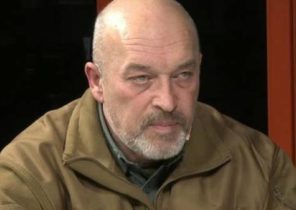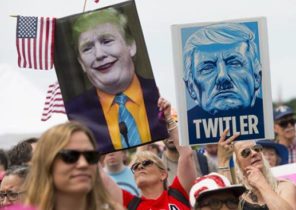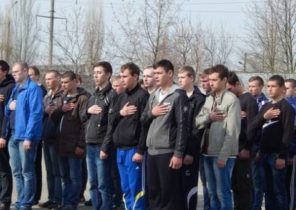Now, when the Prime Minister Boris Johnson is preparing to unveil Sunday, may 10, his strategy for the second phase of the quarantine, all signs point rather to a gradual easing of restrictions, rather than complete abolition of quarantine.
Wednesday, 6 may, the Prime Minister confirmed that he hoped “to begin easing some restrictions on Monday”, 11 may. Further government action will be based on forecasts submitted by the scientific Advisory group on emergencies (Scientific Advisory Group for Emergencies, Sage) about how the incidence could grow under different scenarios. Currently, the incidence is 0.7, and it should be significantly less than unity in order to avoid the second wave.
It is expected that the restrictions will be eased gradually to be able to track the effects of the abolition of the particular measure. As one Cabinet Minister, “the signals will gradually change from “stay home” to “take precautions”. We will see a cautious easing of some restrictions and plans for the gradual return to a state close to normal, not the sudden return to her.”
So, how will the “new normal”?
Work
The office staff, who can continue to work from home will be encouraged to do so. It is expected that employers will explain how you can provide the arrival and departure of staff with diversity on time in that case, if these employees play a key role on a particular enterprise or may not work remotely. In addition, people are advised to use stairs, not elevators.
Johnson encouraged the British to use public transport and commute to work on bicycles. It is expected that the offices will be reshuffles to provide social distance between people. Between those employees who work near each other, you will install protective screens or shields.
Will be encouraged to conduct all meetings electronically if possible. In addition, employers will be required to provide their subordinates disinfectants for hands and thoroughly ventilate premises.
Many of those who work outside the premises, continued to operate throughout the crisis, but said that the government wants to return to the jobs of all those who do not should stay at home, as one Cabinet Minister. “In the technical industry, automotive industry, textile industry and construction, where it is possible to introduce measures of social distancing, work will be encouraged to return to production”.
School
Although Downing Street confirmed the message’s Telegraph that primary school pupils will return to school from the 1st of June, Wednesday, 6 may, health Minister Matt Hancock (Matt Hancock) warned that schools may re-open only September 1. Insisting that it is too early to consider opening the schools, he stressed that he will not “promise” that children will return to school until the fall.
The Minister’s statement was made after last week the main health officer of England, Chris whitty (Chris Whitty) said that in the case of opening schools, the incidence will undoubtedly grow — although in such European countries as Denmark and Switzerland, the children have returned to school.
A source close to the Minister of education Gavin Williams (Gavin Williamson) said: “it would Be foolish to go all in one day. We are now considering the option of a phased return.” Perhaps high school students will return to school first, because next year they will need to pass GCSE and A-Level.
Wednesday, may 6, published the results of a poll in which the majority of parents would not send their children to school immediately after their discovery. This survey, conducted at the parents ‘ forum Mumsnet showed that, when school opens, 57% of parents would prefer the first time to leave the kids at home. And only 22% of parents believe that schools should be open right now.
At a press conference Wednesday evening, may 6, the Minister of housing and communal services Robert Genrich (Robert Jenrick) said only that the gradual reopening of schools will start “when the time comes”.
“Bubbles”
Perhaps the British will be allowed to reunite with loved ones in accordance with the principle of “bubble” whereby they could meet with a limited number of friends and relatives. The emphasis is on the fact that people will be allowed to see the outdoors and it is forbidden to contact anyone who is not among relatives and friends. Perhaps the Brits will resolve to work out more and hanging out outdoors more time.
The first Minister of Scotland Nicola Sturgeon (Nicola Sturgeon), which is directly involved in the decision-making process concerning the whole Kingdom, because she is a member of the Emergency Committee, the UK government’s COBRA has already been reported on possible changes that will allow people “to meet with a small group of specific people” in a kind of “bubble principle”.
Although the government is committed to unity of action now that the United Kingdom is ready to ease quarantine restrictions, Genric cautioned that in certain “regional centers” are possible some deviations from the General plan in that case, if the number of cases there will rise sharply.
Mask
It is expected that Johnson will deliver with new instructions about wearing masks after oversight service in the sphere of transport Transport Focus conducted a study and found that more than half (51%) of commuters who are forced to commute to work by public transport, will be troubled if the government does not make use of facial masks in transport is obligatory for all.
In the survey, which was conducted earlier in may and which was attended by 2 thousand passengers of public transport, 83% of respondents said they would like to see all stations and bus stops was available sanitizers for the hands. 62% of respondents said they would not venture to return to public transport services until imposed effective measures for social distancing.
Meanwhile, only 24% of respondents said they would be glad to start to commute to work by public transport as soon as the government will soften quarantine measures. 40% reported that they will continue to work remotely.
Last week Johnson said that the universal wearing of masks “will be useful, first, for epidemiological reasons, but also because it will help to convince people that they can go back to work.”
Earlier this week, a group of experts from the Royal scientific society gave the members of the Sage group the results of their studies showing that wearing the conventional disposable masks can be quite effective means of protection, so the government should oblige people to wear them at work, in public transport and in shops.
Testing
Wednesday, may 6, during a press conference Johnson said that the government intended to conduct daily 200 thousand tests “by the end of the current month, and then even more to increase their number”. The announcement came after the government reported that on Friday, may 1, the UK has reached its goal of 100 thousand tests per day, but since the number of tests conducted has decreased a bit.
According to Johnson, “at the moment, the opportunities exceed the demand”, and in this regard necessary measures are taken. In the next few weeks the application of the National health system to track spread of coronavirus, which was launched in test mode on the Isle of Wight, will be implemented throughout the country.
Shopping and entertainment centers
It is expected that in the foreseeable future pubs and clubs will remain closed, although the government will make further recommendations regarding the customer service take away. Some cafes have started to open, taking all necessary measures to ensure the social distance. Network of fast food restaurants McDonald’s has announced that from may 13, it will open in the United Kingdom 15 of its restaurants offering delivery services. It is unlikely in the near future we will open hotels, while the government focuses on the need to ensure conditions for “necessary” trips.
Retail stores
Although recently it sounds more and more reports about the reopening of shops selling goods of non-necessities such as shops for gardeners, Johnson is unlikely to make changes to the rules relating to the retail trade, although such chains as B&Q, have already opened some of their retail stores.
Those stores are now working, took all necessary measures, within their own premises, and near them, including mounted plexiglass shields at the box office and imposed restrictions on the number of buyers, both in the stores.
The British consortium of retailers made up for the government report in which he noted that in the case of opening shops trading commodities, the dressing room must remain closed, and other services should be provided to a limited extent.
Places of religious worship
According to Genrika, it is still too early to open a place of religious worship. “We are in dialogue with religious leaders across the country to decide how and when the right moment comes — when they will be able to resume holding worship services in churches, mosques and synagogues across the country. But that moment has not yet come”, — he said.
People over 70
The Telegraph understands that the recommendations for those over 70, will gradually change the background of statements about restrictions on age. At the moment all Britons over the age of 70 are considered within the group of “clinically vulnerable” people, regardless of their health status. 1.5 million Britons with chronic diseases are classified as “extremely vulnerable” people, and they were encouraged to adhere to the strict isolation for 12 weeks.
In the words of one Cabinet Minister, he is not expecting any significant tightening of the rules for people over 70 years of age, despite reports that pensioners can recommend to strictly observe the rules of social distancing until the appearance of the vaccine.
Sports
Although it is expected that Johnson will allow people to play sports as they like — that is, cancels the current restriction according to which sports you can go out only once a day, sports halls and grounds will remain closed.
Members of Parliament from the Conservative party urged to introduce a mandatory checking of body temperature in all gyms and leisure centres, but one senior official told the Telegraph: “where people share equipment, there are many risks.”
“Playgrounds, gymnasiums, and outdoor areas will be open a bit later because there exists an increased risk of transmission of infection.”
Instead, the focus will be on lifting restrictions to leave the house, because, as studies show, the probability of transmission from person to person in the open air is much lower than in the room.
Police
If earlier the task of the police was to explain to people what they can do, now she will be explaining what to do. One source in the Ministry of internal Affairs said, “We will change the signal. Before we did that explained to people what they can do. But now we want to switch to clarification of what they can not do. To ensure that the procedure is much easier if people know what to do”.







